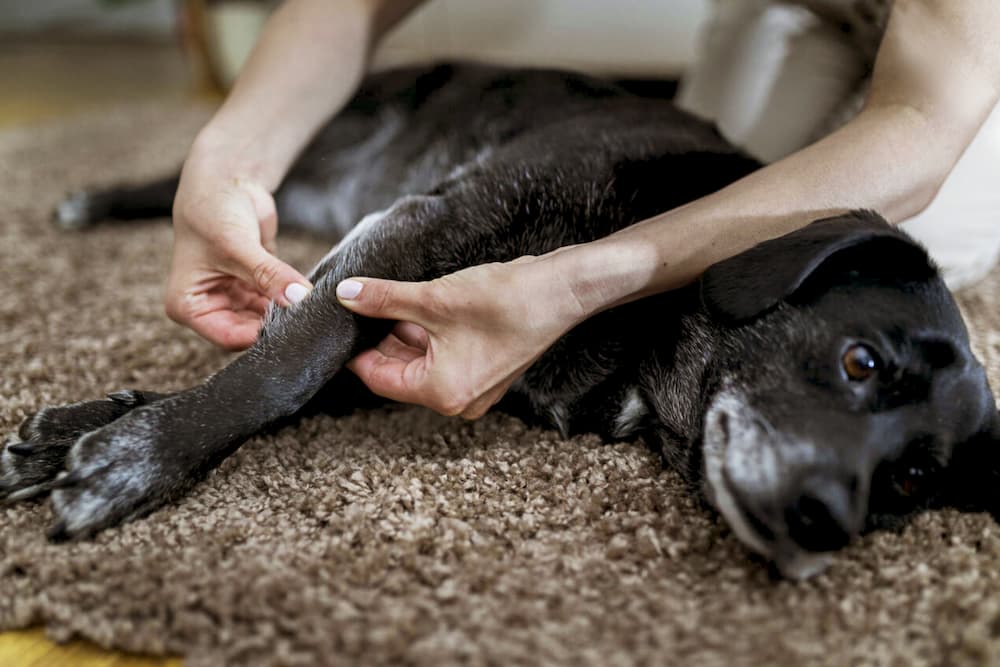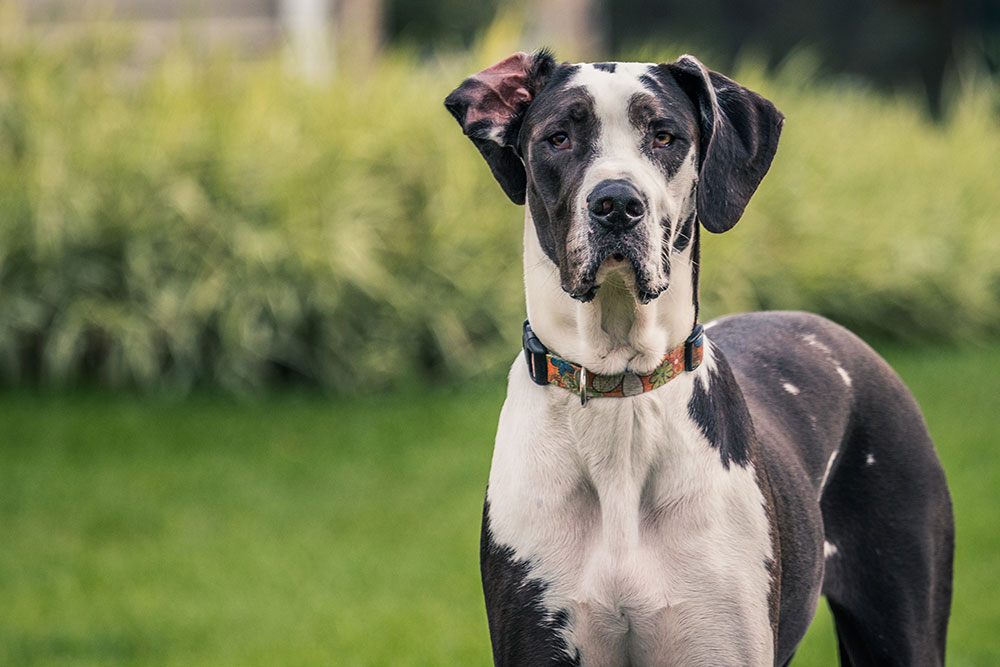Best Info For Choosing Petz Park
Wiki Article
How Can Cat And Dog Joint Health Improved By Omega-3 Fatty Acids?
Omega-3 fatty acids, particularly EPA and DHA are essential to play a part in improving joint health of dogs as well as cats. This is how:
Anti-inflammatory properties
Reduce Inflammation
Function Omega-3 acids are potent anti-inflammatory agents. They decrease inflammation by reducing the production of proinflammatory Cytokines (and eicosanoids), which are molecules.
Benefits: By reducing inflammation in joints, Omega-3s aid in reducing swelling and pain that are associated with arthritis. This can make movement more comfortable for pets, thereby improving their quality of life.
Joint Lubrication and Health
Enhancement of Joint Lubrication:
Function Omega-3 fatty acids keep the health of the synovial fluid, which helps to lubricate the joints.
Benefits: More lubrication results in more fluid joint movements and less friction. This can reduce wear and tear to the cartilage. It is especially helpful for pets with joint issues or are at the risk of getting joint problems.
Cartilage Protection and Repair
Cartilage Protection:
Function: Omega-3s improve the health of cartilage through inhibiting the enzymes that break down cartilage.
Benefits: Protecting cartilage against degradation helps maintain joint integrity and slow the progression of joint-related diseases such as osteoarthritis.
Immune System Support
Immune System Regulation:
Function: The omega-3 fatty acid helps to regulate your immune system and triggers an inflammatory response that is balanced.
Benefits of healthy immune system It helps to prevent joint inflammation and damage through the regulation of the immune system.
Mobility that is comfortable and improved
Improved Mobility
Omega-3s have been proven to be effective in reducing inflammation, protecting joints, and helping pets move better.
Benefits: Senior pets and those with arthritis are often more mobile and have less pain. This allows them to lead a healthier and more active life.
Additional Health Benefits
Overall Health
Function: Omega-3 Fatty Acids also promote cardiovascular, skin and hair health in pets.
Benefits: A pet with better joint and bone health will likely be more active.
The Use of the Internet
Dosage: The amount of Omega-3s is determined by the weight, size, and health status of your pet. Follow your veterinarian's advice or the instructions listed on the product label.
Sources of Omega-3s High-quality fish oil supplements are a popular source of EPA and DHA. To ensure the safety and effectiveness of your pet it's essential to select products specifically designed for your pet.
The side effects of Omega-3 supplements are generally safe but some pets may have digestive issues or have fishy breath. Beginning with a lower dosage and gradually increasing it can help minimize adverse negative effects.
Conclusion
Omega-3 fatty acids can be beneficial for joint health and wellness in dogs as well as cats. Their ability to shield cartilage and increase joint lubrication as well their anti-inflammatory properties help to ensure more efficient joint function. Regular supplementation will improve mobility of pets and promote a healthier life. Have a look at the best top article for natural dog probiotics for website advice including pet oregano supplements, pet supplements for pets with fear of change, pet skin and coat care, pet passionflower supplements, pet kidney supplements, pet supplements for pets with fear of dental work, pet joint support, pet supplements for pets with nerve damage and more.

How Are Dog And Cat How Can Cat And Dog's Skin Allergies Alleviated By Coconut Oil?
Coconut oil is a moisturizing ingredient and also healing and anti-inflammatory, could help pets with skin allergies. Coconut oil is a natural remedy that can aid pets suffering from allergies.
Moisturizing Properties
Hydration of the Skin
Coconut oil is a great moisturizing agent that can penetrate the skin quickly.
Benefits: Helps moisturize dry skin that is flaky, itchy and dry. This relieves itching, while promoting an effective skin barrier. This is beneficial to animals suffering from allergies to skin, such as dermatitis.
Anti-inflammatory Effects
Reduce Inflammation
Coconut oil contains a substance called lauric Acid, which acts as an anti-inflammatory.
Coconut oil can be a fantastic option to decrease the redness and swelling caused by allergies. It can provide a welcome relief for pets experiencing allergic reactions.
Antimicrobial activity
Fight Infections
The function: Coconut oil is a natural source of antimicrobial properties, such as capsrylic and lauric acids that help fight bacteria, viruses, fungi, and many other microorganisms.
Coconut oil prevents or treats secondary skin infections caused by itchiness, allergies and irritation. This helps maintain the health of your skin and preventing any further complications.
Soothing and Healing
Promoting Healing:
Coconut oil is a natural remedy for the skin.
Benefits: It helps to soothe and heal minor cuts or abrasions as well as hot spots that may result from over-scratching. This aids in speeding up the healing time of skin damaged by allergies.
Barrier Protection
Enhancing Skin Barrier:
Coconut oil is a natural moisturizing agent which helps strengthen the barrier to skin.
Benefits: Having a stronger skin barrier decreases allergic reactions and the chance of contracting an infection.
Dietary Supplements
Internal Benefits
Coconut oil may be consumed in the form of a nutritional supplement.
Benefits: When consumed, it supports overall skin health from the inside out. Anti-inflammatory and antimicrobial benefits can reduce systemic swelling and boost the immune system in pets, possibly decreasing skin allergies.
The Use of the Internet
Topical Application - Apply a tiny amount of coconut oils directly on the skin affected. It is essential to gently massage the oil so that it can be absorbent. It is possible to repeat the process every day or twice according to the condition of your skin.
Oral supplementation: Coconut oil can be added to pet's diet. The typical dosage is 1 teaspoon for every 10 pounds of body weight. But it's important that you start out with a small amount before you gradually increase the amount to prevent any gastrointestinal disturbance.
Coconut Oil Quality: Choose virgin, organic coconut oil free of preservatives, additives and other ingredients.
The coconut oil used is usually believed as safe. But, it's crucial to keep an eye on any reactions, such as diarrhea or vomiting after consumption or any irritations to the skin when applied to the skin.
Conclusion
Coconut oil is an effective natural remedy to combat skin allergies in both cats and dogs. Its antimicrobial and healing properties along with its moisturizing and anti-inflammatory properties, soothe and protect the skin, lessen inflammation and itching, and improve the health of your skin. Coconut oil is a great solution to alleviate allergy symptoms. It is also a great choice as an dietary supplement. See the most popular recommended reading on natural dog company for more info including pet echinacea supplements, pet supplements for pets with fear of crates and pens, natural cat supplements, pet omega-6 supplements, cat supplements, pet supplements for pets with fear of eye drops, pet supplements for pets with fear of mirrors, holistic pet supplements and more.
Probiotics Are Helpful For Dogs And Cats Who Suffer From Yeast Infections.
Probiotics help manage yeast infections in dogs, cats and other animals by ensuring a healthy balance in the gut microbiome, as well as on the skin. Here's how probiotics aid in treating yeast infections:
Balance of the Restorative Microbial System
Balancing Gut Flora:
Function: They are beneficial bacteria that aid in maintaining an equilibrium between microorganisms and the digestive tract.
Benefits: A balanced gut microbiome supports overall immune function and helps stop the overgrowth of yeast (such as Candida) which can cause infections. This can help control the yeast infection throughout the body.
Competition with pathogens
Competition with harmful microorganisms
Function: The probiotics are a threat to pathogenic (disease causing) microorganisms including yeast for resources and skin space.
Benefits by outnumbering, competing with pathogens like yeast and other bacteria, while reducing their ability to cause disease and maintaining a microbial ecosystem which is healthier.
Modulation of Immune response
Immune function:
Function: The probiotics influence the production and function of immune-regulating chemicals.
Benefits Having a stronger immune response aids the body in fighting off yeast and prevent recurrence.
Antimicrobial Substances Manufacturing
Antimicrobial Factors of Production:
Function The purpose of certain strains of bacterium (such as Bacteriocins) contain antimicrobial properties, and can be used to fight yeast and other pathogens.
Benefits : These antimicrobial substances are able to stop the growth or development of yeast. This helps in the treatment and control of infections caused by yeast.
Reduce inflammation
Anti-inflammatory Effects:
Function: It has been proven that probiotics can reduce inflammation and can reduce yeast-related inflammation.
Benefits. Through reducing inflammation, probiotics help alleviate symptoms of yeast infections, such as irritation, pain, or the appearance of redness.
Support for Skin Health
Maintaining Skin Barrier Function:
Function: Probiotics help maintain the integrity of the skin barrier.
A well-functioning skin barrier will reduce the risk of yeast-related infection. This is due to it preventing yeast as well as other pathogens from from entering and causing infection.
Utilization and Recommendations
Take probiotic supplements with strains that are known to boost skin health and combat yeast infections like Lactobacillus and Bifidobacterium.
Probiotics can be taken in a variety of types. They include capsules (including powders) and chews (such as gum) as well as chews. Topical probiotic formulas are beneficial for localized infections.
Duration: Probiotics should be consumed for a prolonged time to prevent yeast infections and maintain the microbial balance.
Consultation with a Veterinarian Consult your veterinarian prior to beginning probiotics with your pet. They can advise you on the most appropriate probiotic strains to your pet, as well as dosage and time suggestions based on your pet's particular health condition.
You can also read our conclusion.
Probiotics can be a valuable alternative therapy for treating yeast infections among pets and humans. Probiotics promote a healthy microbial equilibrium, enhance immune function, decrease inflammation and aid in the health of your skin. This can help reduce the severity and frequency of yeast infections. When probiotics are used in conjunction with a comprehensive plan of treatment they can improve the health and comfort of pets suffering from yeast illnesses. Have a look at the most popular he said for collagen for dogs for website examples including natural pet supplements, pet urinary tract supplements, pet aloe vera supplements, premium quality pet supplements, pet red clover supplements, pet eleuthero supplements, pet valerian supplements, pet supplements for pets with nerve damage and more.

